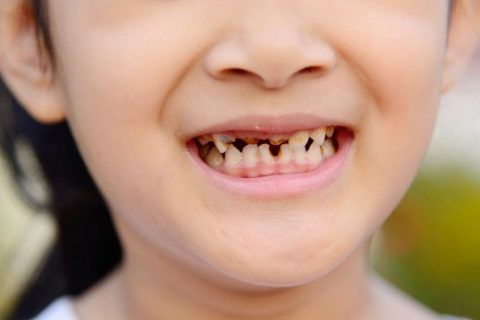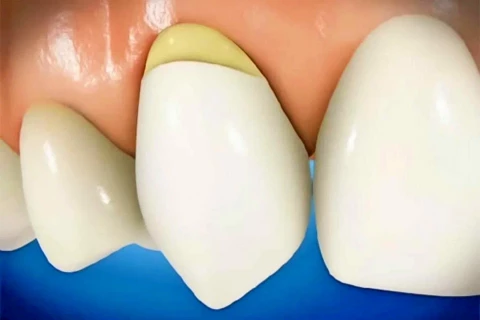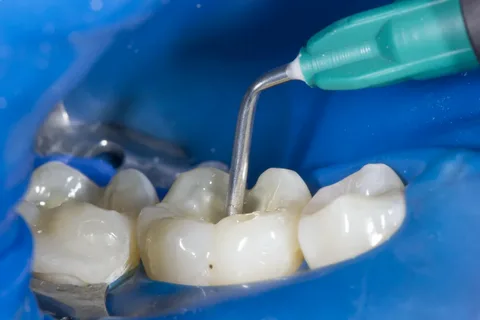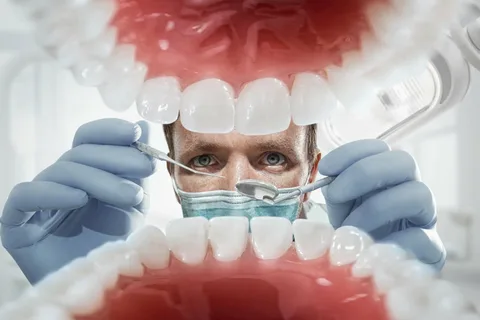TREATMENTS
Worn Teeth Treatment in Lahore
Worn Teeth
Worn teeth often a result of various factors, refer to the condition where the protective enamel on the tooth surfaces has experienced significant loss. This erosion can be caused by behaviors like teeth grinding (bruxism), abrasive tooth brushing, and chewing on hard objects. Acidic foods and beverages, age-related wear, and poor bite alignment can also contribute to enamel erosion. Worn teeth increased susceptibility to cavities, and potential jaw pain

- Functional Impairment
- Aesthetic Concerns
- Speech Difficulties
- Preventing Tooth Migration
- Preserving Bone Health
- Improving Oral Health
- List Item #1
- List Item #2
- List Item #3
Types Of Worn Teeth

Attrition
This type of wear occurs when tooth surfaces grind against each other. It is often associated with bruxism or teeth grinding, which can happen during sleep or as a result of stress.

Abrasion
Abrasion refers to the wear of teeth due to external factors, such as improper tooth brushing techniques, using a hard-bristled toothbrush, or abrasive toothpaste. Over time, these practices can lead to enamel loss.

Local Anesthesia
While not a sedation method per se, local anesthesia involves the injection of anesthetic agents to numb a specific area of the mouth.

Intravenous
Medications are delivered directly into the bloodstream through a vein, inducing a deeper level of sedation. Patients may be in a semi-conscious state, experiencing reduced awareness of the procedure.
CAUSES OF WORN TEETH
The most significant factor is often genetics.Several factors can contribute to worn teeth, and the causes can vary based on individual habits, lifestyle, and oral health. Here are common causes of worn teeth: influence the alignment of teeth. If the jaw is too small to accommodate all the teeth comfortably, it may lead to crowding and misalignment. Dentists can assess the condition of the teeth, identify contributing factors, and recommend interventions. Treatment may include behavior modification, the use of dental appliances
Bruxism
Persistent grinding or clenching of teeth, especially during sleep
Improper Bite
Misalignment of the teeth or jaws can create uneven pressure during biting and chewing.
Abrasive Toothbrushing
Aggressive brushing with a hard-bristled toothbrush or abrasive toothpaste can wear down enamel over time.
Acidic Foods and Beverages
Regular consumption of acidic foods and drinks, such as citrus fruits, sodas, or certain wines.
Worn teeth
Symptoms of Worn Teeth
- Visible Wear
- Chipped or Cracked Teeth
- Discoloration
- Difficulty Chewing
- Medical Conditions
- Teeth Alignment Changes
How To Take Care Missing Teeth
Taking care of your oral health, especially when you have missing teeth, is important to prevent complications and maintain overall well-being. Here are some tips on how to care for missing teeth:
Floss Regularly: Floss between your remaining natural teeth and around dental appliances to remove plaque and prevent gum disease. If you have dental bridges or implants, use floss threaders or interdental brushes for effective cleaning.
Use an Antiseptic Mouthwash: Rinse your mouth with an antiseptic or fluoride mouthwash to help control bacteria and maintain oral hygiene. Consult your dentist for recommendations based on your specific needs.
Visit Your Dentist Regularly: Schedule regular dental check-ups, even if you have missing teeth. Your dentist can monitor the health of your remaining teeth, assess your gum health, and address any concerns promptly.
Consider Dental Appliances If you have missing teeth, your dentist may recommend dental appliances such as bridges, dentures, or implants to restore function and aesthetics. Follow your dentist’s instructions for care and maintenance of these appliances.
FAQs
Worn teeth can result from factors such as teeth grinding (bruxism), clenching, acidic foods, aging, and certain medical conditions.
Teeth grinding exerts excessive force on teeth, leading to wear on the tooth enamel and potential damage to the tooth structure.
Symptoms may include tooth sensitivity, flattened or chipped teeth, jaw pain, headaches, and changes in tooth appearance.
Yes, worn teeth can be restored through various dental treatments, including dental bonding, veneers, crowns, and other restorative procedures.
Bruxism management may involve using a custom nightguard, stress reduction techniques, and addressing underlying causes with the help of a dentist.
Yes, cosmetic solutions like veneers and dental bonding can enhance the appearance of worn teeth while providing strength and protection.

